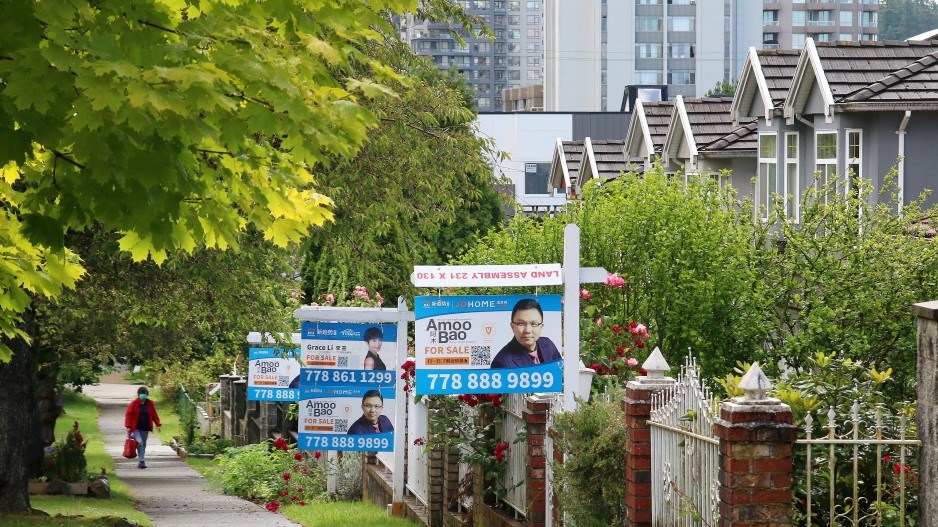B.C. real estate agents are facing increasing competition that some might say rivals the heat emanating from the province’s housing market.
The number of licensed real estate agents in B.C. has increased by almost 35 per cent from 20,825 to 29,416 over the past decade, according to data from the BC Financial Services Authority (BCFSA).
“If BCFSA gave honest information right now about how many Realtors there are, what the competition is, what the average Realtor makes, and so on and so forth, I think it would scare the living heck out of most people getting into the business,” said Andrew Carros, managing broker of Engel and Völkers in Vancouver.
Of the 29,416 licensed real estate agents in 2023, there are 26,185 registered with the British Columbia Real Estate Association (BCREA).
“There's always this sense that the numbers should ebb and flow with the market … and that's not true,” said Trevor Koot, CEO of the real estate association.
“Where we see the ebb and flow based on market [conditions] is the number of new Realtors coming into the industry.”
There were 3,216 new real estate agents who registered with the BCREA in 2022, a year that started out with the Bank of Canada’s key rate set at 0.25 per cent. This is roughly 38 per cent above the average of 2,177 new registers over the last five years, according to Koot.
The Bank of Canada has since hiked its key rate to five per cent, putting pressure on the real estate industry as mortgage costs become more daunting for many in the province.
“We don't see the same outflow as we see inflow of Realtors, and so that's why there's this progressive increase in numbers over the last 20’ish years,” he said.
The growing number of real estate agents in B.C. is intensifying competition at a time when the industry is adjusting to new regulations and economic conditions aimed at dampening housing market activity, according to those who spoke to Glacier Media.
“You have to continue to set yourself apart from a bigger pool of people,” said Koot, adding real estate agents are also at the front line for all of the regulations.
“As all of that continues to get layered on to the responsibility of the Realtor, that's a differentiator for them too. It becomes more competitive around who can provide all of those services at the same time.”
Among the changes facing the industry is the Realtor co-operation policy that came into effect Jan. 3. It requires listings to be posted on the MLS real estate marketing system within three days of being advertised publicly.
Carros described the increase in real estate agents over the last decade as the “biggest problem in the industry.”
“I liken it to if I was opening up a sushi restaurant. Would I open it on the same block as four other sushi restaurants? Probably not. And that's what Realtors are hearing right now, is everybody's coming into the business with this thought of a dream. And social media makes it look like we're constantly successful and doing super well,” Carros said.
“The truth is nobody's making money because the average Realtor is now doing about six [deals] per year. That's not enough to survive.”
When real estate agent Camila Savia thinks back on her first seven months with Engel and Völkers, she said she came into the job with hopes of getting her first deal within the first three to four months.
“You have this idea, like, ‘OK, I'm going to join the brokerage and then things are going to start to happen.’ But it's not like that at all. Especially now with the rising competition,” said Savia, who moonlights as an actress and model in Vancouver.
Social media and pop culture have also played a role in influencing perceptions of the real estate industry, according to those who spoke to Glacier Media.
“I have people in my circle that say ‘Oh, you're a Realtor, is it like Selling Sunset?’” said Savia, referring to the Netflix Inc. (Nasdaq:NFLX) reality show based on real estate agents in Los Angeles.
“I see it a lot, trying to impress people with materialistic goods. I think a lot of pop culture and these TV shows have a lot to do with this sort of influence.”
Koot said that reality shows can build a sense of curiosity around the profession.
“Obviously, these TV shows and social media choose to show you what will be good for clickbait, and they put a different light on the industry,” he said.
“It's not all glamorous, for sure. Certainly, a lot of Realtors will tell you it's not this endless pot of money.

